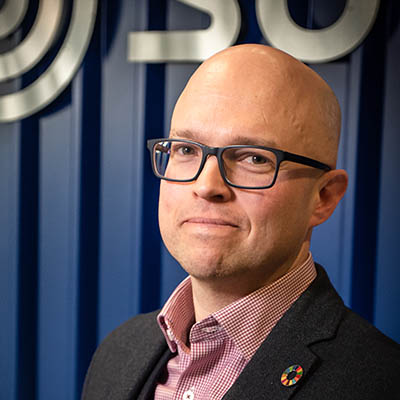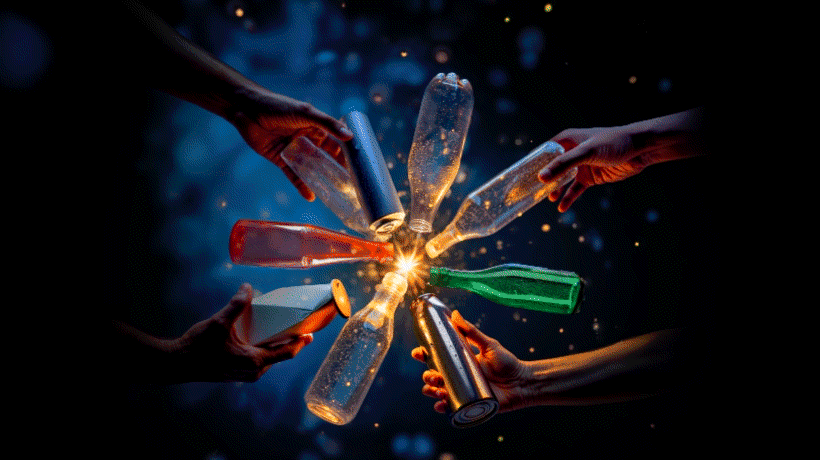We need to support our current and future workforce

Here we are, post summer holidays, children back at school and the UK’s largest waste and resources exhibition, RWM, is almost upon us.
I have spent a fair amount of time in recent weeks helping to get the UK Resources Council sector deal draft plan out for consultation, and I have been very focused on the skills, people, support, training and wider education that our sector will need beyond 2030, which is not easy I can tell you.
This has got me thinking about the sector, how we help develop the current workforce, and longer term how do we attract and develop the future engine room of our sector.
Upskilling throughout the workforce is key
People, skills and their development have been very much at the fore of my workload these past few weeks. I have been heavily involved with WAMITAB, the sector’s leading awarding body for employer-led qualifications that provide individuals with fit-for-purpose skills for the workplace.
I am a director at the organisation and therefore spend my time looking at future sector needs in terms of skills and workforce development as the new policy landscape starts to unfold between now and 2025.
WAMITAB has fed into the UK Resources Council draft sector plan and will be a key contributor as we refine the ‘ask and offers’ for BEIS (Department for Business, Energy and Industrial Strategy) at the end of the year. Upskilling operatives and looking at transferable skills and experiences will be vital as the sector shifts gear to meet the demands of net zero carbon, green growth and Defra’s new Resources & Waste Strategy.
New framework to help people develop their competencies and skills
In addition I have been working closely with the CIWM on their Framework for Professional Standards which provides a map of the professional competences required at four key career stage. It has been developed with a broad group of representatives from across the sector, again helping individuals to work out what skills and capabilities they need and how they can get them.
The CIWM is also creating new assessment and planning tools to help people to use the framework to determine and address each and everyone’s development needs. So if you are planning on being at RWM this week, then stop off at the CIWM stand for a chat, a coffee, and a closer look at the framework and how it could help you.
Mentoring 101 – it can bring huge value if you get it right
I have also begun to develop a number of new mentoring and professional development programmes for a portfolio of colleagues at SUEZ, from apprenticeships and new recruits through to senior staff looking to broaden their experiences and impact.
Mentoring to many is about having a nice chat and a cup of tea, but that undermines the true value of having one or more mentors who can really help you develop as a person and in professional capacity. They can act as a guide and peer when you need to bounce ideas around or help you to decide on training needs.
I find mentoring and ‘associated personal development’ support to be very rewarding, and I was lucky in my early career to have a number of advisors on hand who shared their experience, challenged my thinking and suggested good courses or events to attend to help address a lack of personal knowledge or insight.
These advisors have stayed with me throughout my career, and although most are retired, and unfortunately one or two have passed away, I still stay in touch and seek out their expertise from time to time.
Over the years I have mentored colleagues, and through CIWM and ISWA (International Solid Waste Association) I have helped to mentor young people coming into our sector and who needed help on becoming chartered or in their early career development.
This type of mentoring can be much harder due to time zone differences, working in different geographies and not having the same personal time to get to know one another, but they can still be very valuable if the candidates are committed to the process. So don’t be shy in considering how you could help inspire the next generation of resource managers, there is help out there and support available for mentors as well as mentees.
I am currently developing some new guidance with the CIWM to assist with their mentoring and support programme designed to help graduates and technical members progress to full chartered waste managers.
I hope more chartered waste managers and sector professionals will put themselves forward to help others starting out in the sector, whether they are employed in the same company, organisation or in a similar setting, geography or time zone. I would recommend you all give it a go.
Maximising those learning and development opportunities
With so much of my recent working week focused on other people, their needs, and the skills requirements of the sector now, tomorrow and in 20 years, it seemed an ideal time to reflect on these needs and opportunities in light of the conference season we are about to engage with.
In the next five weeks, I will be spending a significant amount of time at industry workshops, seminars, conferences and exhibitions, ensuring I am up to speed on key topics, developing new networks, and representing both SUEZ and CIWM.
But this time, more than any other I am concerned about the opportunities that these events could present for those that I am mentoring and tutoring, and I am encouraging many of them to join me here so we can maximise the opportunities for them to learn and reflect.
We have RWM this week in Birmingham, the Scottish Resources Conference in Paisley and LARAC (for the recyclers amongst you) in Birmingham. I will also be in Bilbao for ISWA to look at international development programmes and collaboration and how to work closer with their young members group on career development agendas. So if you are going to any, give me a shout-out.
And with so much of my time out and about in the coming six weeks, I need to stay focused on what value am I getting from each event, and how can I help those I am supporting to get more from them?
As such I have been sitting down and looking at the programmes, identifying sessions at each event that would be suited to the learning and development needs of each candidate, and have committed to putting time in at each event to help with introductions to speakers, key individuals and other people who are in development mode.
We have also agreed to have a debrief session at the end of each day, looking at who did you speak with, what did you learn, and what is your next priority so we can really focus all of our time and effort whilst at these events.
Never let it be said that conference season is just a load of nice jollies out of the office. That has never been the case for me, and this year I am planning with almost military precision what I am doing at each to ensure I get to spend quality time on my own professional development and time with my mentees dedicated to their personal and professional development. I hope you all do similar at future event- afterall you can’t take your own professional development lightly.
This blog was originally published on http://www.recyclingwasteworld.co.uk on 09 September 2019.
